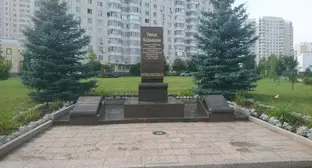23 March 2015, 09:00
Week in the Caucasus: review of main events of March 16-22
Large-scale oppositional protest action in Tbilisi; special operation in Makhachkala; armed clash on the Azerbaijani-Nagorno-Karabakh border; signing of a new Russian-South Ossetia alliance and integration treaty; actions in Southern Russia on the anniversary of Crimea annexation; change of Prime Minister in Abkhazia, – see the review of these and other events in the Caucasus during the week of March 16-22, 2015, prepared by the "Caucasian Knot".
UNM holds mass protest in Tbilisi and announces start of Govt's impeachment
On March 21, in central Tbilisi, the oppositional "United National Movement" (UNM) Party held a large-scale action to demand the resignation of the government, which, according to the organizers, was attended by 50,000 people. According to other sources, the event was about 10,000 strong. Participants from all regions of Georgia came to take part in it. The ex-Georgian President Mikhail Saakashvili addressed the rally by video from Brussels, reminded of the pre-election promises of the ruling coalition "Georgian Dream" and stated that "today, the Georgia's economy is on the stop." After the rally, Sergo Ratiani, an MP from the UNM, said that his faction would initiate the Govt's impeachment at the Parliament of Georgia.
Seven people killed in special operation in Makhachkala
In the morning on March 21, the counter-terrorist operation (CTO) regime was introduced in the Leninsky District of Makhachkala. Power agents reported that they had blocked a group of alleged members of the armed underground. During the CTO, a child was evacuated from the blocked flat of a five-storey residential building. As a result of a battle, two militants were killed; and a SOBR (a Russian analogue of SWAT) fighter was wounded, the National Antiterrorist Committee (NAC) of Russia reported. Later, when power agents made a flat-by-flat inspection, another group of militants was detected; and another armed clash broke out. After inspection of all places of skirmish, seven bodies were found: a man and a woman in one flat; and three men and two young women – in the other. The CTO regime in Makhachkala was lifted 1:00 p.m. Moscow time on March 22. According to a source from the local Ministry of Internal Affairs (MIA), one of the casualties was pre-identified as Murad Musaev, a member of the "Makhachkala" grouping of militants, born in 1988, who was suspected of shelling on March 19 an employee of the Centre for Combating Extremism of the Dagestani MIA.
Armed clash with many casualties occurs on Azerbaijani-Nagorno-Karabakh border
The clash took place on March 19 at the contact line of Azerbaijani and Karabakh armed forces. According to the Ministry of Defence (MoD) of Azerbaijan, up to 20 enemy soldiers were killed and wounded; however, the MoD gave no data about its losses. According to the MoD of the Nagorno-Karabakh Republic (NKR), they had three lost and four wounded soldiers, and killed at least 10 soldiers of the Azerbaijani Army. It is noteworthy that one day before the clash, on March 18, at the contact line near the village of Ashagi Seyidakhmedli in the Fizuli District, the members of the OSCE mission held their monitoring and found no violations of the ceasefire. However, both Azerbaijani and Armenian experts, while commenting on the clash, found the resumption of any large-scale hostilities in the conflict zone unlikely.
Russia and South Ossetia sign new alliance and integration treaty
A new Russian-South-Ossetia alliance and integration treaty, which has replaced the Treaty of Friendship, Cooperation and Mutual Assistance, signed in September 2008, was signed by Presidents Vladimir Putin and Leonid Tibilov on March 18 inMoscow. The document provides for the opening of the border, increase of pensions and salaries, as well as ensuring the security of South Ossetia without becoming a part of Russia.
According to the Russian experts, polled by the "Caucasian Knot", the treaty fixes the established South-Ossetian-Russian relations and currently excludes any chances for the "Crimean option". Politicians from North Ossetia assert that the treaty will be mutually beneficial. In Georgia, both the authorities and the opposition expressed their negative attitude to the new treaty. The President of Georgia Giorgi Margvelashvili said that the step was against the territorial integrity of a sovereign state, while opposition politicians have once again accused the Georgian authorities of weakness. In the opinion of Georgian political scientist Kakha Gogolashvili, with signing of the new treaty South Ossetia looses its once appeared attributes of a quasi-state. Well before the above signing, the European Union and the United States treated the document as illegitimate. The treaty undermines security in the region, said Jens Stoltenberg, the NATO Secretary General.
Actions in Southern Russia on anniversary of Crimea annexation
Actions in support of annexation of the Crimea took place in almost all the regions of Southern Russia on March 18, the first anniversary of signing by Russian President Vladimir Putin of the treaty about incorporation of the Crimea and Sevastopol to Russia. According to organizers and MIA officials, the rallies were attended by different number of participants, from 20 people in Sochi up to 13,000 people in Krasnodar. After rallies, celebratory concerts took place in many cities. The participants themselves noted that the actions were very short. As reported by city authorities, the rally in support of the accession of the Crimea to Russia, held in Grozny, was over 10,000 strong. Here, civil servants and university students said that they were forced to attend the event.
Abkhazia replaces its Premier
On March 16, the President of Abkhazia Raul Khajimba signed a decree to dismiss Beslan Butba from the post of Prime Minister and appoint Shamil Adzynba, the First Vice-Premier, to be the Acting Premier. Butba said that he himself initiated his resignation, claiming that he had been removed from the majority of his duties. His resignation was expected, local experts said, noting that his work was criticized by the president, although he had no real freedom of action. On March 20, Arthur Mikvabiya, who headed the electoral headquarters of the current president, was appointed to be the republic's Prime Minister.




